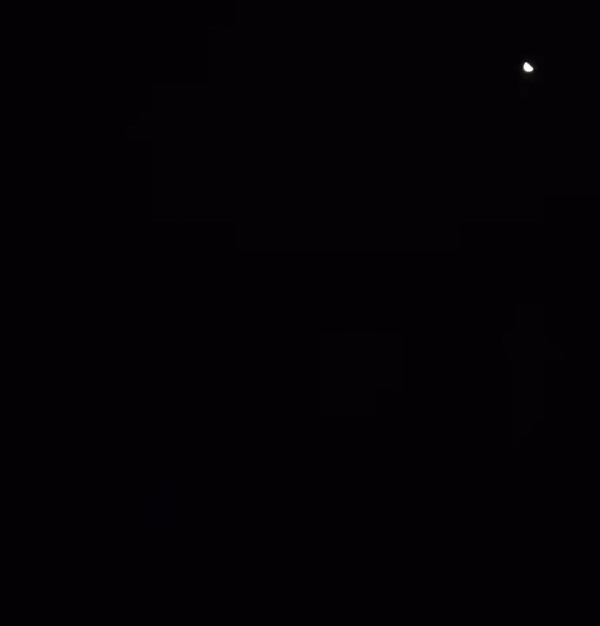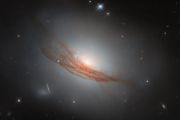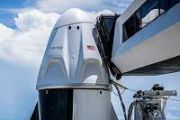
Copernical Team
Two crews set for Tiangong station in '23
 China will launch two crews to work on its Tiangong space station this year, according to the China Manned Space Agency.
The agency published schedules for the Shenzhou XVI and XVII mission crews on Wednesday, saying that the Shenzhou XVI team will leave for the Tiangong station in May while their counterparts in the Shenzhou XVII mission will fly to the massive orbiting outpost in October
China will launch two crews to work on its Tiangong space station this year, according to the China Manned Space Agency.
The agency published schedules for the Shenzhou XVI and XVII mission crews on Wednesday, saying that the Shenzhou XVI team will leave for the Tiangong station in May while their counterparts in the Shenzhou XVII mission will fly to the massive orbiting outpost in October Brain changes in fighter pilots may cast light on astronauts during space travel
 One cannot explore the profound mysteries of space without being changed by it. This is the message underlying a new study in Frontiers in Physiology. The study examined the brains of F16 fighter pilots, which have a lot in common with those of astronauts in terms of adapting to altered gravity levels and rapidly processing conflicting sensory information. MRI scans revealed that pilots with mor
One cannot explore the profound mysteries of space without being changed by it. This is the message underlying a new study in Frontiers in Physiology. The study examined the brains of F16 fighter pilots, which have a lot in common with those of astronauts in terms of adapting to altered gravity levels and rapidly processing conflicting sensory information. MRI scans revealed that pilots with mor Upsurge in rocket launches could impact the ozone layer
 University of Canterbury (UC) researchers have summarised the threats that future rocket launches would pose to Earth's protective ozone layer, in a new review article published in the Journal of the Royal Society of New Zealand.
The ozone layer, which protects life on Earth from harmful ultraviolet (UV) rays from the sun, was severely damaged in the 1980s and 1990s due to chlorofluorocarb
University of Canterbury (UC) researchers have summarised the threats that future rocket launches would pose to Earth's protective ozone layer, in a new review article published in the Journal of the Royal Society of New Zealand.
The ozone layer, which protects life on Earth from harmful ultraviolet (UV) rays from the sun, was severely damaged in the 1980s and 1990s due to chlorofluorocarb China's space station experiments pave way for new space technology
 Multiple engineering experiments are currently underway, or poised to begin, at a cabinet on China's space station which is in a near-Earth orbit. These experiments aim to acquire know-how that can support more experimental possibilities and human survival in outer space.
The Space Basic Experiment Cabinet mounted on the country's space lab module Mengtian is carrying its first group of fi
Multiple engineering experiments are currently underway, or poised to begin, at a cabinet on China's space station which is in a near-Earth orbit. These experiments aim to acquire know-how that can support more experimental possibilities and human survival in outer space.
The Space Basic Experiment Cabinet mounted on the country's space lab module Mengtian is carrying its first group of fi SpaceX halts plans to convert oil rigs into floating offshore launch pads
 After speaking at the Federal Aviation Administration Commercial Space Transportation Conference on February 8, President and COO of SpaceX, Gwynne Shotwell told reporters that SpaceX has abandoned their plans for floating Starship launch platforms.
"We bought them. We sold them. They were not the right platform," she said.
SpaceX acquired two former deepwater oil drilling rigs in 20
After speaking at the Federal Aviation Administration Commercial Space Transportation Conference on February 8, President and COO of SpaceX, Gwynne Shotwell told reporters that SpaceX has abandoned their plans for floating Starship launch platforms.
"We bought them. We sold them. They were not the right platform," she said.
SpaceX acquired two former deepwater oil drilling rigs in 20 SpaceDaily Streamlines Imaging Process with ChatGPT's Technology
 SpaceDaily, a leading news organization covering space exploration, astronomy, and technology, has implemented ChatGPT's technology, along with simple rules lists and innovative software development, to streamline its imaging process.
The combination of these technologies has enabled SpaceDaily to generate filenames for image files based on their captions and vice versa, while also enablin
SpaceDaily, a leading news organization covering space exploration, astronomy, and technology, has implemented ChatGPT's technology, along with simple rules lists and innovative software development, to streamline its imaging process.
The combination of these technologies has enabled SpaceDaily to generate filenames for image files based on their captions and vice versa, while also enablin NASA study seeks to understand impact effects on Mars rocks
 A NASA study describes how rocks could have been "shocked" and changed by meteorite impacts, once frequent on ancient Mars. This will improve our analysis of rock samples collected from the Red Planet.
"Because we're counting on these samples to reveal a record of Mars' geologic past, it would be important for us to understand if and how the rocks have been altered," said Dr. Svetlana Shko
A NASA study describes how rocks could have been "shocked" and changed by meteorite impacts, once frequent on ancient Mars. This will improve our analysis of rock samples collected from the Red Planet.
"Because we're counting on these samples to reveal a record of Mars' geologic past, it would be important for us to understand if and how the rocks have been altered," said Dr. Svetlana Shko Webb uncovers new details in Pandora's Cluster
 Astronomers have revealed the latest deep field image from NASA's James Webb Space Telescope, featuring never-before-seen details in a region of space known as Pandora's Cluster (Abell 2744). Webb's view displays three clusters of galaxies - already massive - coming together to form a megacluster. The combined mass of the galaxy clusters creates a powerful gravitational lens, a natural magnifica
Astronomers have revealed the latest deep field image from NASA's James Webb Space Telescope, featuring never-before-seen details in a region of space known as Pandora's Cluster (Abell 2744). Webb's view displays three clusters of galaxies - already massive - coming together to form a megacluster. The combined mass of the galaxy clusters creates a powerful gravitational lens, a natural magnifica Boosting market traction for agri-monitoring service

Support from ESA’s Earth observation InCubed commercialisation programme has enabled two companies, GeoVille and EOX, to secure a major contract to provide an Austrian Area Monitoring Service. The consortium’s EO-WIDGET software provides the farming sector with critical satellite-derived information and is a key tool in compliance monitoring for the European Common Agricultural Policy.
Seventh shooting star ever spotted before it struck
 Image:
Image:
For the seventh time, a small asteroid – a meteoroid as astronomers call it – was discovered in space as it raced towards Earth for impact. The predicted time and location of the impact (02:50 - 03:03 UTC, above northern France) were made possible with observations by European astronomer Krisztián Sárneczky using the 60 cm Schmidt telescope from the Piszkéstető Observatory in Hungary. 2023 CX1 is the second impactor discovered by Krisztián, after the impact of 2022 EB5 less than a year ago.
The last three predicted impacts have
































